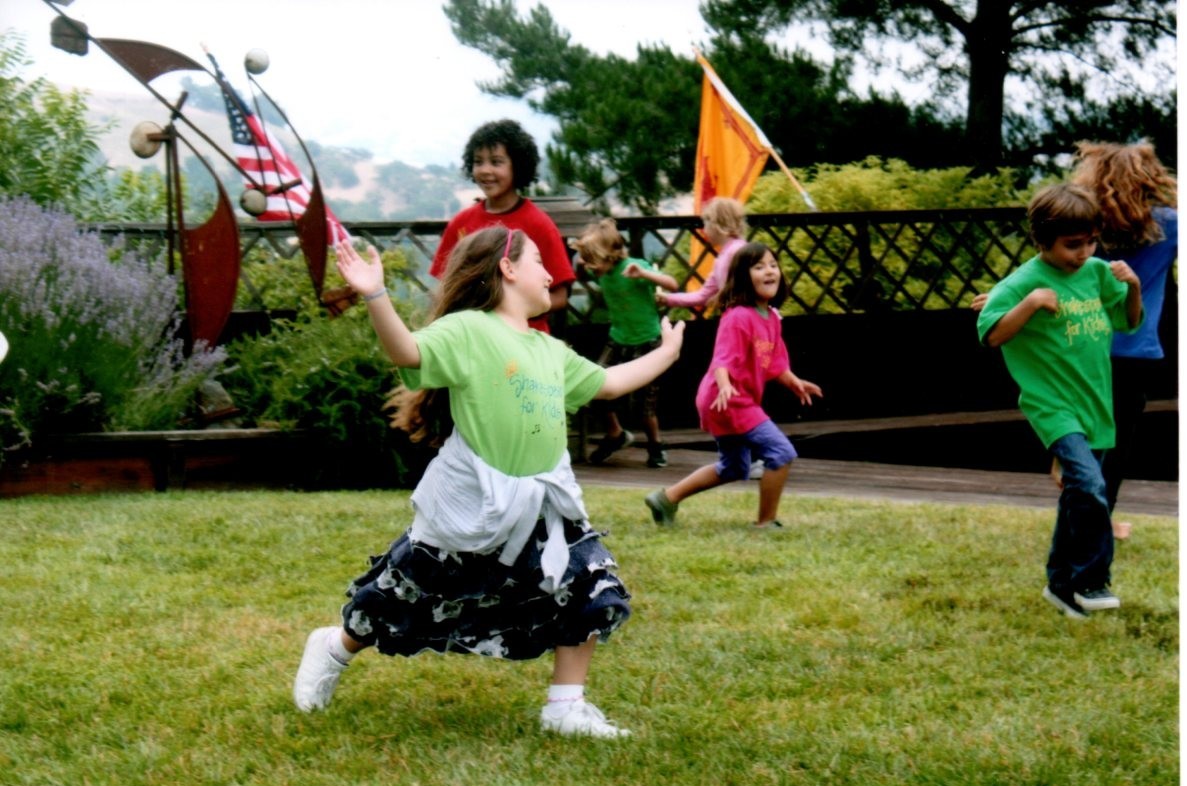 Attending Renaissance Faires were lively outings with archery, clay potting, violin playing under shady oak trees, and turkey-leg knoshings while enjoying actors’ shenanigans in the various play venues. Inevitably, souvenirs were brought home; the clay pots, of course, and various fabric and floral head dresses. A good time was had by all.
Attending Renaissance Faires were lively outings with archery, clay potting, violin playing under shady oak trees, and turkey-leg knoshings while enjoying actors’ shenanigans in the various play venues. Inevitably, souvenirs were brought home; the clay pots, of course, and various fabric and floral head dresses. A good time was had by all.
Such a good time it was that Carol and her family staged birthday parties for the Bard in their home every April 23rd.
At that time, her fellow Bard enthusiasts, and the children’s school friends and families, were invited to come to the family home in costume, bring an authentic dish chosen from Madge Lorwin’s cookbook, “Dining with Will,” and to give a recitation or reading from the treasured poetry of Shakespeare. Acting was encouraged, but nobody was to be voluntarily cornered.
Her younger children memorized Don Freeman’s book, “Will’s Quill” for a recitation; her older children chose romantic characters to portray. Authentic music played throughout the evening, while feasting and revelry took place.
Inspired by her children’s interest and their delight at including their friends, Carol was motivated to gather up all the souvenirs, including calligraphy pens, books and art work to design a course of renaissance study, whereby play days could turn into fun with a purpose that could last a week or two during summer vacations.
With suggestions from the children and their collective Bard adventures, activities such as juggling, jousting, sachet making, clay potting, fight choreography, dancing, gardening, cooking, costuming, heraldry, make-up and play acting, they needed only lights, action, and a bevy of Bard aficionados and talents to carry the days’ adventures.
When educational and musical friends learned of the adventure, they volunteered to help. Good Will abounded as Dakin Matthews invited them to the Berkeley Shakespeare grounds, where he and his children were acting in “A Midsummer Night’s Dream.”
“We had the fun of picnicking with them in play clothes during the sun shiny warm daytime, then seeing them transformed into magical fairies in white, luminescent costumes under lights at night,” said Carol.
William Shakespeare cast his magic over a new generation, and Carol rejoiced to realize the vast potential for further adventure and educational opportunities. Thus was born, Shakespeare for Kids in 1983.